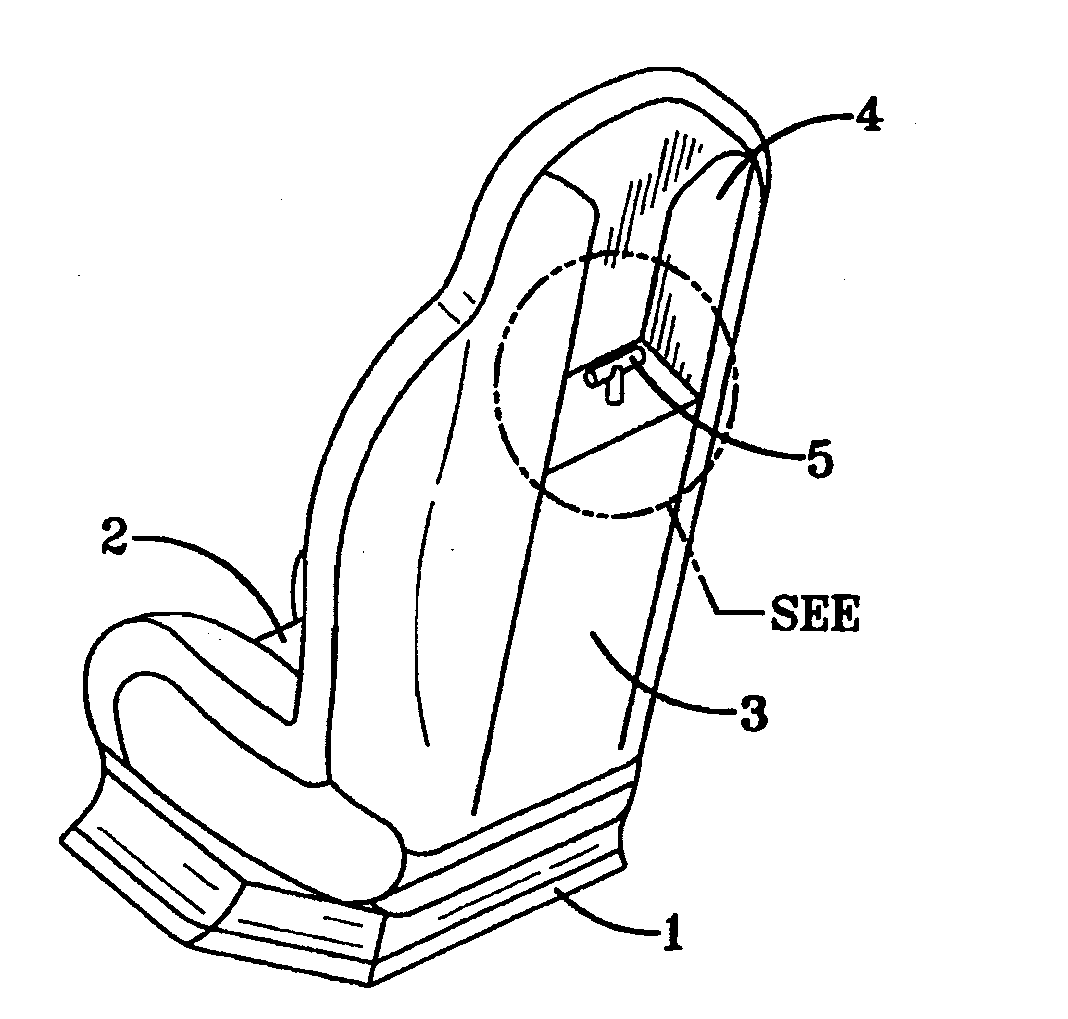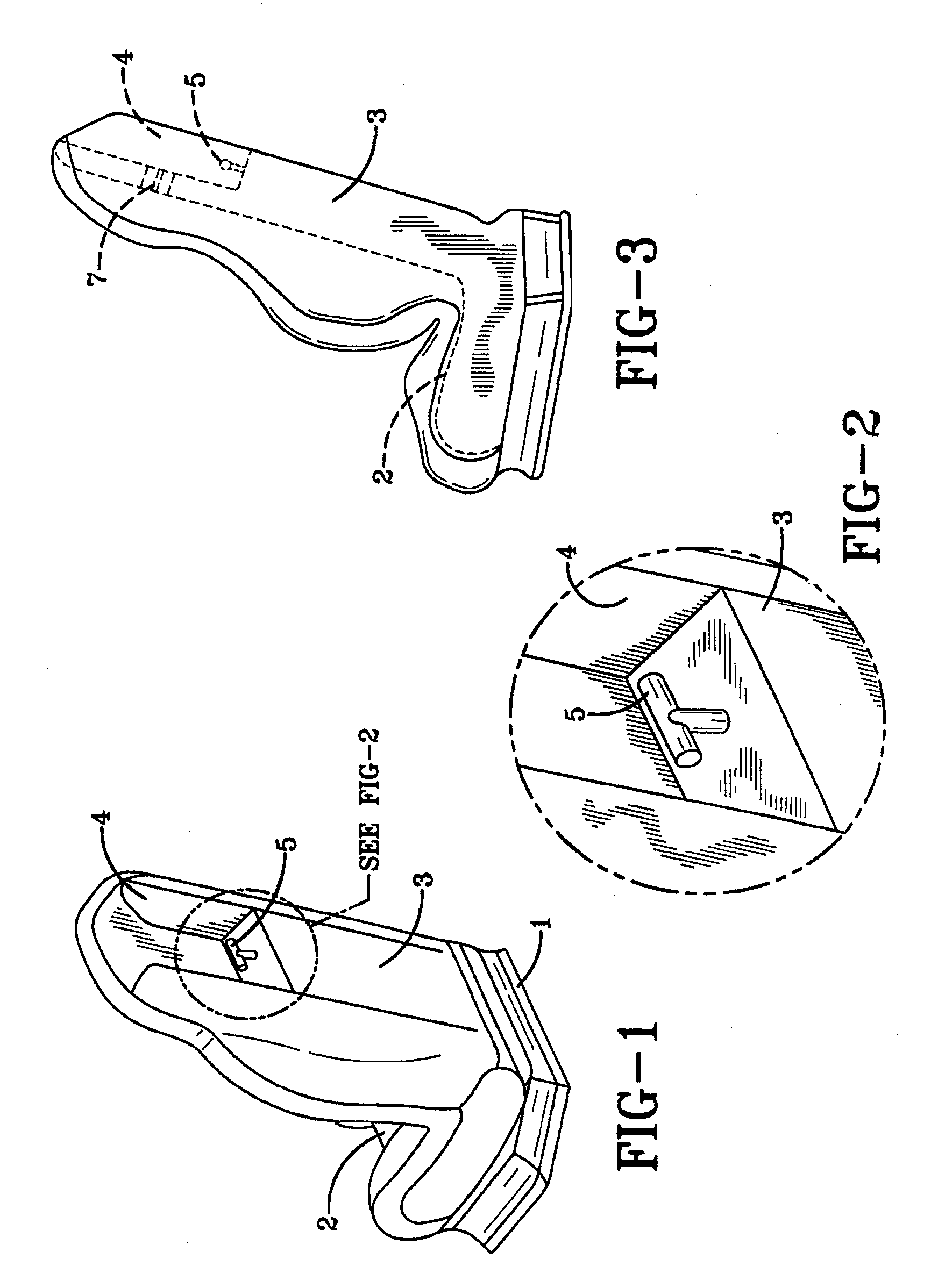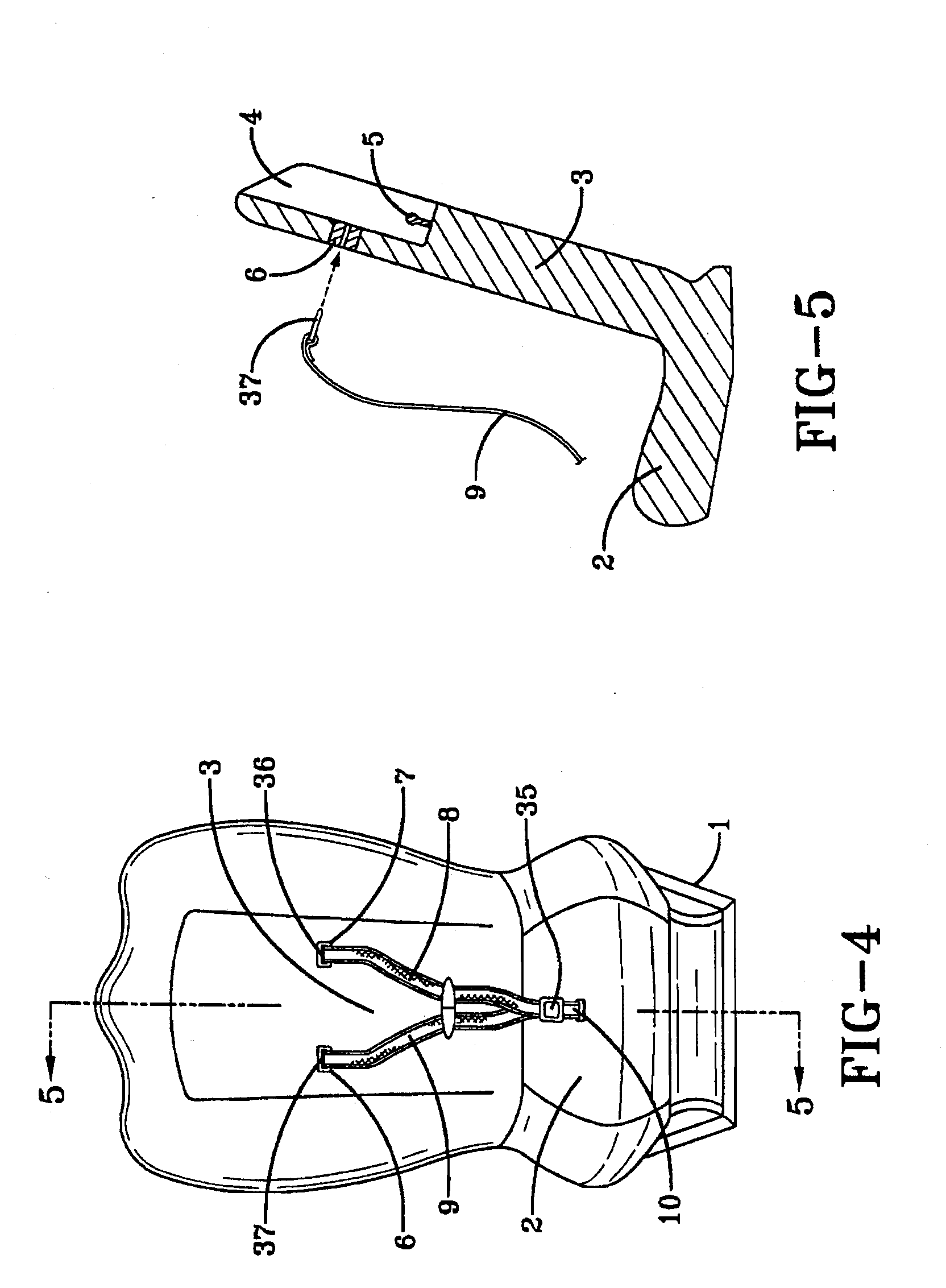Child safety seat with emergency harness release
a child safety seat and harness technology, applied in the field of child safety seats, can solve the problems of insufficient protection of children by conventional safety belts and harnesses designed for adult passenger use in automobiles, many of the conventional belt systems used in conjunction with child safety seats are relatively complicated and difficult to use, and inexperienced users often find securing children into safety seats to be challenging. , to achieve the effect of fast and easy removal of children
- Summary
- Abstract
- Description
- Claims
- Application Information
AI Technical Summary
Benefits of technology
Problems solved by technology
Method used
Image
Examples
Embodiment Construction
[0034]The present disclosure provides a child safety seat can be used in a wide variety of vehicles including automobiles, trucks, buses, aircraft and boats. In one exemplary embodiment of the present disclosure, a child safety seat comprises: (a) a supporting base structure adapted to be secured to a vehicle seat; (b) a child seating surface wherein the seating surface comprises a seat bottom and a seat back, and wherein the seat back has disposed therein at least one pair of laterally spaced buckles; (c) a child restraint harness wherein the harness comprises a pair of shoulder restraint belts running from the laterally spaced buckles in the seat back to a seat bottom locking tongue, each shoulder restraint belt having a locking tongue affixed to an extreme end of the belt for insertion into the laterally spaced pair of buckles in the seat back, and a buckle affixed to the front center portion of the seat bottom for receiving the seat bottom locking tongue; and (d) an emergency me...
PUM
 Login to View More
Login to View More Abstract
Description
Claims
Application Information
 Login to View More
Login to View More - R&D
- Intellectual Property
- Life Sciences
- Materials
- Tech Scout
- Unparalleled Data Quality
- Higher Quality Content
- 60% Fewer Hallucinations
Browse by: Latest US Patents, China's latest patents, Technical Efficacy Thesaurus, Application Domain, Technology Topic, Popular Technical Reports.
© 2025 PatSnap. All rights reserved.Legal|Privacy policy|Modern Slavery Act Transparency Statement|Sitemap|About US| Contact US: help@patsnap.com



